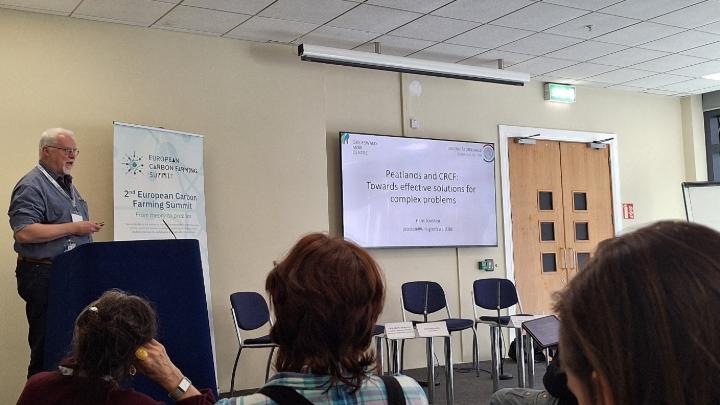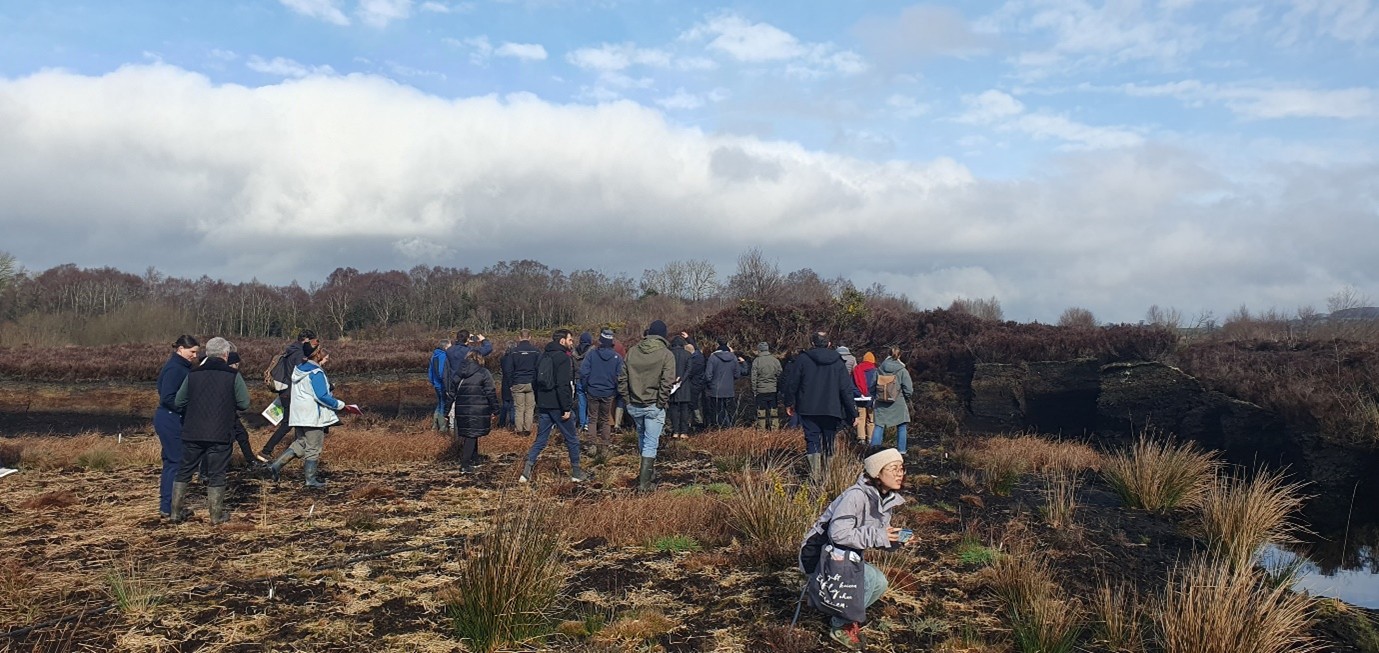March 4– 6 2025
BUFFER+ partners AC3A (Association of the Chambers of Agriculture of the Atlantic Area) and The Rivers Trust took part in the 2025 European Carbon Farming Summit at Dublin Castle. Their objective was to engage with a wide range of stakeholders—from industry and policymakers to academics and farmers—to gain valuable insights into the evolving carbon farming landscape.
The summit kicked off with a plenary session outlining the ambitious goals for carbon emission reduction, aiming to cut 400 million tonnes of emissions from farmlands by one-third by 2030. Discussions centred around reducing fertilizer use, exclusively producing green nitrogen within Europe, and the CRCF certification targeted for 2026.
Each day of the summit featured a variety of workshops, talks and debates on different aspects of carbon farming, such as MRV (measuring, reporting and verification) and regional differences impacting CRCF implementation.
Prof. Hans Joosten, founder of modern paludiculture and peatland researcher, delivered an engaging talk regarding the current state of knowledge on peat soils water and carbon holding capacity, which was of particular interest to the BUFFER+ group. He emphasized that restoring any peatland is a cause for celebration, as it significantly contributes to environmental conservation. Importantly, once peatlands are rewetted, the carbon savings achieved are not reversed, demonstrating that even shorter restoration projects can have a lasting positive impact.

The Rivers Trust representative Freya Connolly participated in a workshop on paludiculture hosted by University of Greifswald, promoting its adoption within the agricultural community. The session began with a short quiz to understand the audience’s background and up to what level they are informed about peatlands. Following this, participants engaged in a World Café discussion format, allowing them to exchange insights with table hosts. The session included three discussion rounds with six experts, each covering a specific topic:
- Challenges and needs for income increase from paludiculture.
- Experiences in collaborating with farmers on accessing carbon credit payments from peatland rewetting.
- Promoting the adoption of paludiculture within the agricultural community.
- Barriers and opportunities for EU CRCF take-up.
- Making Paludiculture work.
- Technical and scientific support for paludiculture profit success.
Discussions covered issues such as policy misalignment, slow technological and market development, and the lack of concrete examples. Effective strategies included showcasing emission reduction as a proven concept, listening to farmers' interests, and providing long-term financial incentives.
The final day of the summit featured an optional trip to visit a live paludiculture site, hosted by Green Restoration Ireland. The opportunity to see ongoing work and engage directly with the farmer was invaluable, providing many insights to bring back to the BUFFER+ group to further bolster their work.
